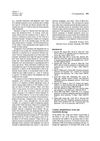 1 citations,
August 2018 in “bioRxiv (Cold Spring Harbor Laboratory)”
1 citations,
August 2018 in “bioRxiv (Cold Spring Harbor Laboratory)” A new mutation in the TMEM173 gene and a risk allele in IFIH1 cause a unique set of immune-related symptoms.
![Integrating Multi-Omics Analyses of Nonomuraea Dietziae to Reveal the Role of Soybean Oil in [(4′-OH)MeLeu]4-CsA Overproduction](/images/research/0eba9759-3aa4-4a06-a70a-2d9c46be53f3/small/23018.jpg) 1 citations,
July 2017 in “Microbial Cell Factories”
1 citations,
July 2017 in “Microbial Cell Factories” Adding soybean oil to Nonomuraea dietziae increases production of a beneficial compound by improving metabolism and enzyme systems.
 1 citations,
November 2015 in “Indian Journal of Clinical Biochemistry”
1 citations,
November 2015 in “Indian Journal of Clinical Biochemistry” The conference presented findings on how vitamin D levels, genetic factors, and lifestyle choices like smoking and yoga affect various health conditions and diseases.
 1 citations,
May 2015 in “Primary Health Care”
1 citations,
May 2015 in “Primary Health Care” Effective acne treatment varies by type, with topical and oral medications showing strong evidence, and patient education and support are crucial.
 1 citations,
August 2013 in “Springer eBooks”
1 citations,
August 2013 in “Springer eBooks” Birth control pills and anti-androgen medications help manage hair growth, acne, and hair loss in women with PCOS.
 1 citations,
January 2013 in “Elsevier eBooks”
1 citations,
January 2013 in “Elsevier eBooks” The document reviews various hair and nail disorders, their causes, and treatments, emphasizing the need for proper diagnosis and the link between nail changes and systemic diseases.
 1 citations,
January 2013 in “Springer eBooks”
1 citations,
January 2013 in “Springer eBooks” Cosmeceuticals may benefit skin health but need more research for efficacy and safety confirmation.
 1 citations,
October 2010 in “Cambridge University Press eBooks”
1 citations,
October 2010 in “Cambridge University Press eBooks” Hormonal therapies are effective for managing hair and skin symptoms in women with PCOS.

Finding functions for unknown GPCRs is hard but key for making new drugs.
 1 citations,
June 2010 in “Expert Review of Dermatology”
1 citations,
June 2010 in “Expert Review of Dermatology” Covers common skin issues in kids, their diagnosis, treatment, and need for specialist care.
 1 citations,
January 2006 in “Elsevier eBooks”
1 citations,
January 2006 in “Elsevier eBooks” The conclusion is that different types of hair loss in dogs and cats can be cosmetic or serious, and affected animals should not be bred.
 1 citations,
January 1989 in “Journal of dermatological treatment”
1 citations,
January 1989 in “Journal of dermatological treatment” Azelaic acid may help treat acne by killing bacteria, reducing inflammation, and preventing clogged pores.
 1 citations,
November 1987 in “Journal of The American Academy of Dermatology”
1 citations,
November 1987 in “Journal of The American Academy of Dermatology” Isotretinoin can raise CPK levels, so patients need monitoring, especially before surgery.
 1 citations,
April 1976 in “Archives of Dermatology”
1 citations,
April 1976 in “Archives of Dermatology” Sudden weight loss can cause significant hair loss, and using colchicine on the skin for psoriasis may be unsafe.
 1 citations,
January 1967 in “The BMJ”
1 citations,
January 1967 in “The BMJ” The document concludes that while some hair and scalp disorders can be treated, hair loss from destroyed follicles is permanent, and damaged hair can only regrow naturally.
 1 citations,
July 1965 in “Postgraduate medicine”
1 citations,
July 1965 in “Postgraduate medicine” Most skin conditions can be managed with general medical knowledge.
 April 2024 in “International journal of women's health”
April 2024 in “International journal of women's health” Adult female acne is a complex condition that can worsen with menopause, requiring holistic treatment and tailored skincare at different life stages.
 February 2024 in “PloS one”
February 2024 in “PloS one” Tofacitinib and adalimumab are promising treatments for cicatricial alopecia with few side effects.
 February 2024 in “Buletin Veteriner Udayana”
February 2024 in “Buletin Veteriner Udayana” The dog with severe hair loss and itching improved after treatment for ehrlichiosis and demodicosis.
 January 2024 in “Polski Merkuriusz Lekarski”
January 2024 in “Polski Merkuriusz Lekarski” Pica disorder in central Iraq is mainly found in females and is linked to low iron levels; treatment with iron improves most patients.
 August 2023 in “bioRxiv (Cold Spring Harbor Laboratory)”
August 2023 in “bioRxiv (Cold Spring Harbor Laboratory)” Too much β-catenin activity can mess up the development of mammary glands and make them more like hair follicles.
 April 2023 in “bioRxiv (Cold Spring Harbor Laboratory)”
April 2023 in “bioRxiv (Cold Spring Harbor Laboratory)” Sweat gland development involves two unique skin cell programs and a temporary skin environment.
 December 2022 in “bioRxiv (Cold Spring Harbor Laboratory)”
December 2022 in “bioRxiv (Cold Spring Harbor Laboratory)” MicroRNA-205 helps hair grow by changing the stiffness and contraction of hair follicle cells.
 September 2022 in “Research Square (Research Square)”
September 2022 in “Research Square (Research Square)” Hydrocolloid wound dressings emit energy that can affect human hair follicle metabolism.
 August 2022 in “International journal of research in pharmacy and chemistry”
August 2022 in “International journal of research in pharmacy and chemistry” Teak is a durable, termite-resistant wood with medicinal benefits.
 July 2022 in “SKIN The Journal of Cutaneous Medicine”
July 2022 in “SKIN The Journal of Cutaneous Medicine” A new lotion with halobetasol and tazarotene successfully treats acne keloidalis nuchae.
 January 2022 in “International journal of zoology and animal biology”
January 2022 in “International journal of zoology and animal biology” Dogs with dermatomyositis, especially Collies and Shetland Sheepdogs, need better treatments for their skin and muscle inflammation.
 January 2021 in “Türkiye klinikleri dermatoloji dergisi”
January 2021 in “Türkiye klinikleri dermatoloji dergisi” Eyebrow loss in frontal fibrosing alopecia is common and may be linked to other health issues.
 November 2020 in “Elsevier eBooks”
November 2020 in “Elsevier eBooks” Antiandrogens and androgen inhibitors like spironolactone, finasteride, and dutasteride can treat hair loss and skin conditions, but they have risks and side effects, including potential harm to pregnant women and risks of cancer and heart issues. Herbal remedies also have antiandrogenic effects but lack safety validation.
 October 2020 in “Veterinary Dermatology”
October 2020 in “Veterinary Dermatology” New treatments and diagnostic methods for various animal skin conditions showed promising results.


![Integrating Multi-Omics Analyses of Nonomuraea Dietziae to Reveal the Role of Soybean Oil in [(4′-OH)MeLeu]4-CsA Overproduction](/images/research/0eba9759-3aa4-4a06-a70a-2d9c46be53f3/small/23018.jpg)



























